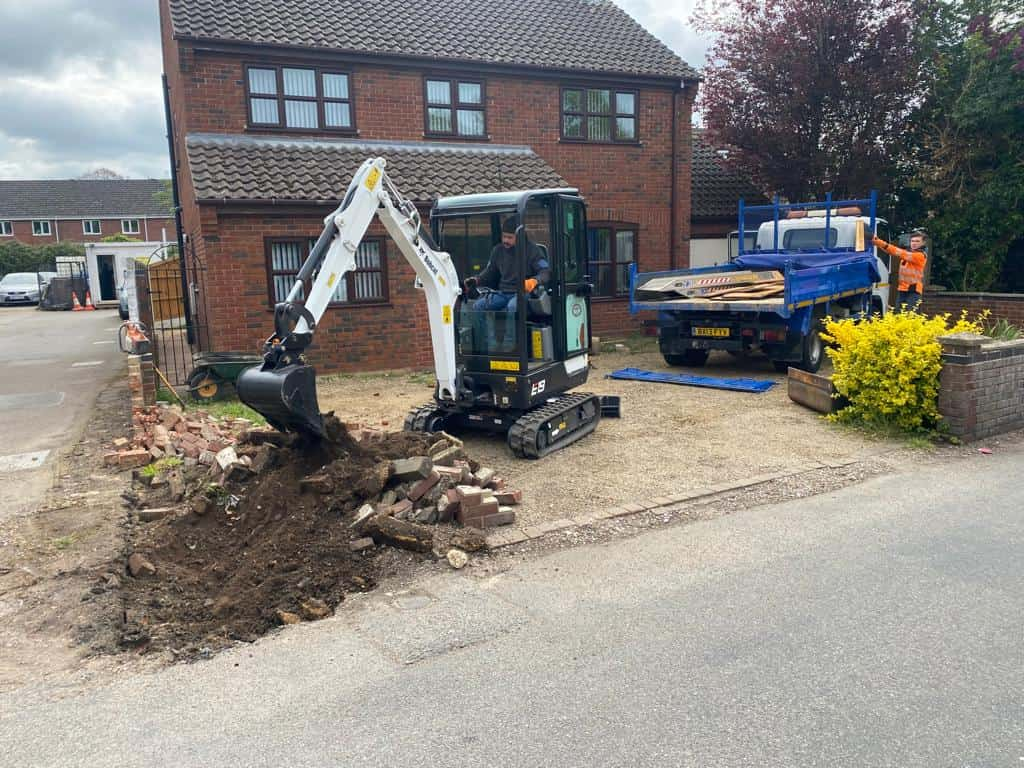Paving the Way: The Future of Tarmac Farm Roads – Trends and Innovations by Halesworth Driveway Contractors
Introduction: Farm roads play a crucial role in the agricultural industry, providing access to fields, pastures, and farm buildings. As technology advances and environmental concerns grow, the future of tarmac farm roads is evolving to meet the needs of modern agriculture. In this blog post, we’ll explore the latest trends and innovations shaping the future of tarmac farm roads brought to you by Halesworth Driveway Contractors.
1. Sustainable Materials
One of the most significant trends in the future of tarmac farm roads is using sustainable materials. As environmental awareness grows, farmers and contractors increasingly turn to eco-friendly paving materials that minimise carbon emissions and reduce environmental impact. Recycled asphalt, for example, is an eco-friendly alternative to traditional asphalt that uses reclaimed pavement (RAP) to reduce the need for new aggregates and fossil fuels.
2. Permeable Paving
Permeable paving is gaining popularity as a sustainable solution for farm roads. Unlike traditional asphalt, which creates impervious surfaces that contribute to stormwater runoff and erosion, permeable paving allows rainwater to infiltrate the ground, replenishing groundwater supplies and reducing the risk of flooding. Permeable asphalt and porous concrete are two examples of permeable paving materials offering environmental and practical benefits for farm roads.
3. Reinforced Paving
Farm roads require durable and resilient paving solutions to withstand heavy agricultural machinery and frequent use. Reinforced paving techniques, such as using geotextiles or grid systems, are becoming increasingly common to enhance the strength and stability of tarmac farm roads. These reinforcements help distribute loads more evenly, reduce surface deformation, and prolong the road’s lifespan, ultimately saving time and money on maintenance and repairs.
4. Smart Technology Integration
The future of tarmac farm roads is increasingly intertwined with smart technology and digital innovation. Sensor-equipped roads can provide real-time data on road conditions, traffic flow, and vehicle usage, allowing farmers to optimise route planning, monitor equipment performance, and improve overall efficiency. Solar-powered road studs, LED lane markings, and intelligent traffic signs can enhance safety and visibility on farm roads, particularly during low-light conditions or adverse weather.
5. Modular Construction
Modular construction techniques offer a flexible and cost-effective approach to building tarmac farm roads. Prefabricated paving units, such as interlocking blocks or panels, can be quickly assembled and installed without requiring specialised equipment or extensive site preparation. Modular construction also allows for easier maintenance and repairs, as damaged or worn sections can be replaced or upgraded individually, minimising downtime and disruption to farm operations.
Conclusion: The future of tarmac farm roads is evolving to meet the demands of modern agriculture, with a focus on sustainability, durability, and innovation. By embracing trends such as sustainable materials, permeable paving, reinforced construction, smart technology integration, and modular construction, farmers and contractors can create farm roads that are functional, efficient, environmentally friendly, and resilient.
Call us on: 01508 505 225
Click here to find out more about Halesworth Driveway Contractors
Click here to complete our contact form and see how we can help with your driveway needs.

